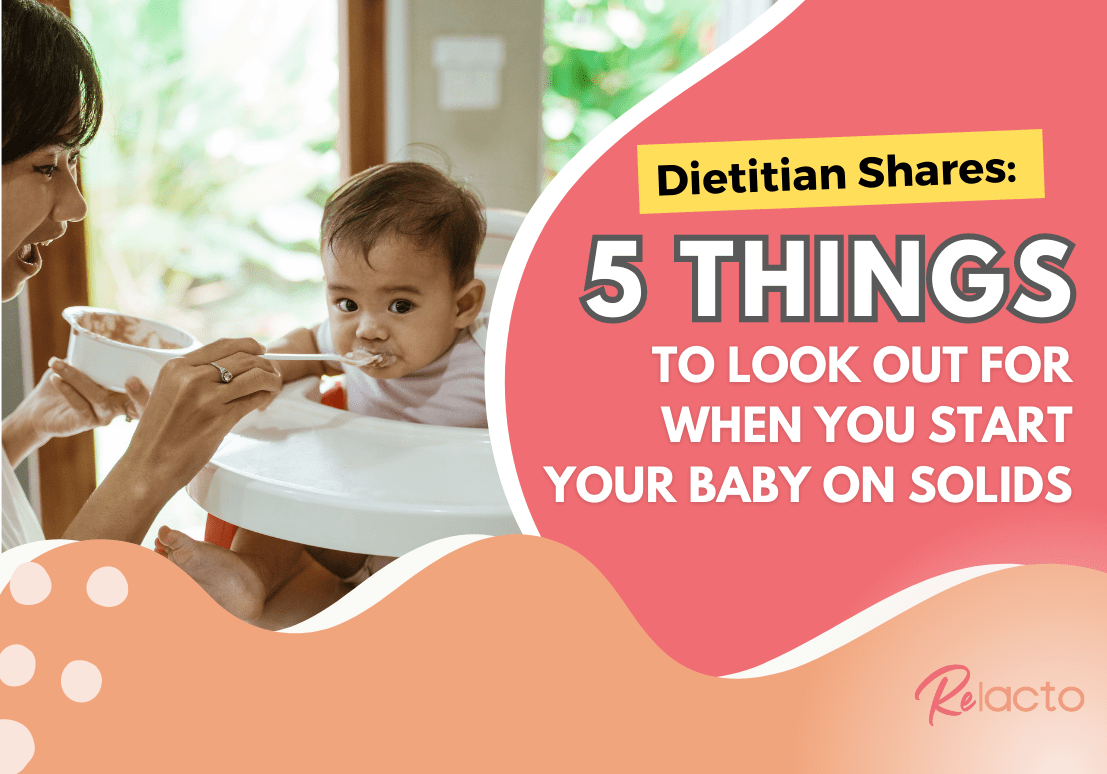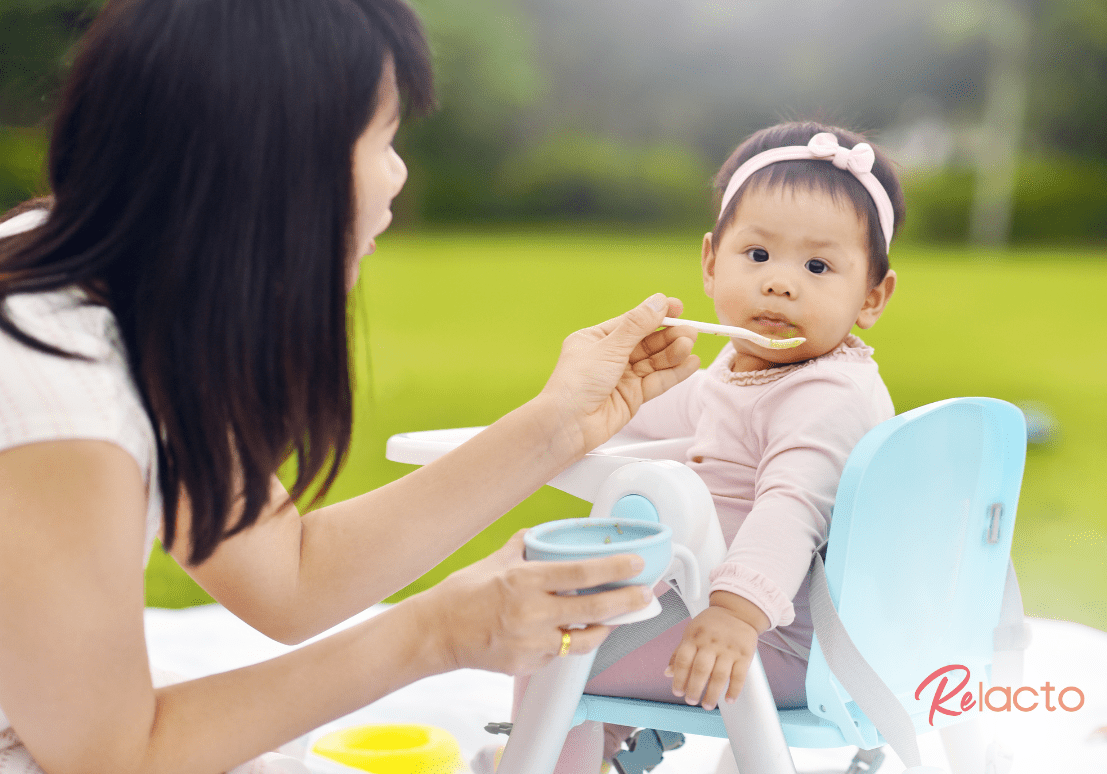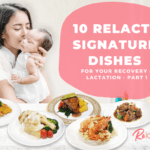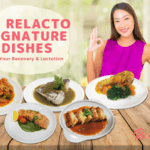Dietitian Shares: 5 Things to Look Out For When You Start Your Baby On Solids

Generally, babies are ready to start weaning after 6 months of age. However, there is no need to stick stubbornly to this age for babies to start eating solid food. Some babies are ready as early as 4 months old. Your baby will be the best person to show you that they are ready. So here are a few things to look out for when you start your baby on solids.
Baby is able to sit up well against the back of a chair
It is important that your baby is able to sit up well without assistance. This helps to indicate that the baby has the core strength to sit upright and have his or her head up during meal times. Having a good high chair with a footrest where the baby can place their feet is best as it helps the baby to stabilize his or her core, which makes it easier for him or her to eat.
Baby shows interest in food
Besides that, the other key sign that your baby is ready to start weaning is when your baby starts trying to show interest in food. Their eye and hand coordination would always be on foods, especially when they are eating. He or she would also start trying to put different objects into their mouth instinctively. However, it is important to watch out for some behaviours that may be mistaken for signs of being ready such as :
- chewing fists
- wanting extra milk feeds
- waking up in the night more than usual.
These are not necessarily signs of hunger or being ready to start solids. Giving them solid foods will not make your baby more likely to sleep through the night. Sometimes, a little extra milk will do the trick.
Milk is still the main component
When you first start weaning, babies still depend on milk as their main source of calorie and nutritional intake. It is what keeps them full. The aim of weaning during the first two months or so is to introduce your baby to different foods, flavours and textures. The start of weaning can look like just 1 to 2 teaspoons of a puree, and it can progress to 1 to 2 tablespoons a few times a day, so long as your baby shows interest in food during that meal setting.
As your baby gets older and more used to solid foods, it is important to gradually increase the portion size to a full meal until it is able to replace one session of milk feeds. Ideally, solid foods should cover the 3 main meals per day.
Until then, allow your little one to drink milk as much as he or she wants once he or she is done with trying the solid foods. Do not rush the process! If you are still breastfeeding and are thinking of how to eat well as you breastfeed, these days, there are lactation meals available. Lactation food singapore and breastfeeding meal delivery services are available at your convenience, whether it’s to your home or to your workplace.
Attend Infant CPR Course
We all hope our babies do not get choked when they are starting on solid foods. As babies learn how to eat solid foods, they will definitely learn how to gag from time to time and understand their capacity to chew and swallow certain foods as they grow. Babies are smart! However, there is always a risk of babies choking during meal times. Therefore, it is important to never leave your baby alone when he or she is eating. Besides that, ensure that food is properly pureed so that the baby is able to swallow without choking. Gradually, as the baby gets older, foods should still be soft but chunkier and textured to help him or her learn how to chew properly before swallowing.
Last but not least, it may also be a good idea to attend an Infant CPR course to understand what to do in the event your baby chokes on food. Such courses equip mothers with the knowledge to act fast in such situations, especially when time is of the essence.

Monitor and Make Food Logs
It is important to start introducing your baby to single-ingredient foods. This helps you identify if your baby is allergic to certain foods, especially when it comes to introducing different allergenic foods to your baby, such as
- Soy
- Peanut
- Tree nut
- Fish
- Seafood
- Dairy
- Eggs
- Wheat
- Sesame Seed
These are foods that should be taken alone and taken a few times in small amounts to understand if they trigger an allergic reaction in your baby. An allergic reaction is a condition that shows symptoms like sudden itchy rashes, runny or blocked nose, facial swelling and worsening asthma.
In such situations, remove the food ingredient immediately and rush to see the nearest doctor. If the condition is severe, call emergency services. It is important to discuss with your paediatrician what the next steps are as your baby grows. Seeing a pediatric Dietitian would be beneficial as they would be able to plan and guide your baby on any re-introduction to such foods gradually and safely.
Besides that, having a food log on what your baby is eating every day till your baby is 1 year old will help you understand the variety of foods introduced as well as the progression of different food textures. Some experts in the field Katie Ferraro, a Dietitian who specializes in baby-led weaning, even suggests that babies should be introduced to about 100 different foods before they turn a year old as many babies develop preferences as they grow older and the variety of foods they are going to eat is only going to be smaller. So, the idea is to introduce as many as possible before the food preferences start kicking in.
Conclusion
Weaning is an interesting time. It is a major milestone in your baby as he or she grows older. Both parents and babies go through such a journey with food to help babies understand what is going to be good for their bodies.







